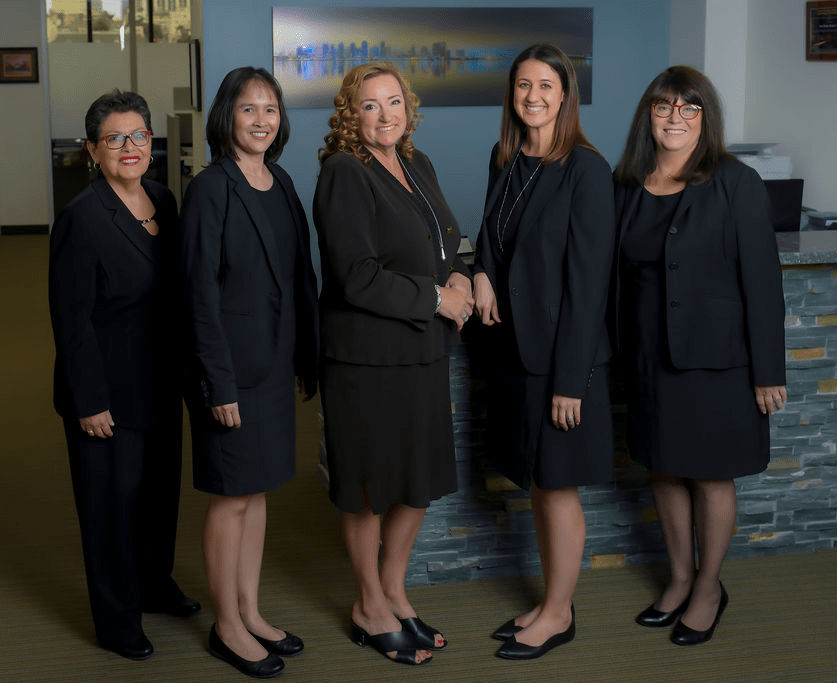Heightened anxiety and uncertainty in the world often result in significant family distress, including a surge in domestic violence incidents.
As a family law practice, we need to show up for our clients now more than ever. For that reason, JWB Family Law is operating under the same business hours as usual.
We are available to our clients by phone, by Zoom, if necessary, in person. We are following CDC guidelines to maintain a healthy and safe work environment and we hope you are doing the same.
COVID-19 and Family Law: Frequently Asked Questions
These questions and answers are based on the most current information as of 5/4/2020 and are subject to change daily as the Court makes decisions about procedural methods during the COVID –19 closure. Please check frequently for updates.
Q: How is COVID affecting the legal system broadly?
A: According to this week’s State of the Court Address, the San Diego Superior Court has 63,000 matters with hearings that need to be rescheduled due to COVID closure.
The Court is extremely impacted due to the Court’s closure, and rescheduling the backlog of hearings will take months, resulting in delays for the resolution of most San Diego cases. It is unknown when trials will be re-calendared.
The courts are coping with how to open under county and CDC guidelines, in addition to implementing safety protocols that ensure the safety of their staff and the public as court access increases. Once the courts fully re-open, there will be a surge of filings, service, and emergency hearings.
Q: Can I schedule a consultation with JWB Family Law remotely?
A: Yes, absolutely. JWB Family Law prioritizes the health and safety of its employees and clients by offering remote consultations via Zoom, Microsoft Teams and traditional phone calls. The work we do at JWB Family Law is essential, and we are committed to being available for our clients when they need us most, while complying with State and Federal COVID-19 regulations.
Q: Can I get a restraining order with The Courts closed?
A: During quarantine, people have been exposed to violence, harassment, verbal, mental, and physical abuse from spouses and partners. Quarantine has heightened both new and ongoing occurrences of domestic violence at home. If children are present during these incidences, the abused party should immediately contact an experienced family law attorney to file for a DVTRO.
Q: How do I get a restraining order when the Court is closed?
A: Contact a family law attorney ASAP, for assistance with the filing of your DVTRO request. The attorney will ensure the pleadings are appropriately filed at the Courthouse. The judge will read the pleading and deliver an order on the DVTRO without a hearing in Court. A decision to deny or grant your request for DVTRO will be made the same day the pleadings are submitted. Your counsel or the Courthouse will advise you of the judgment.
Q: Can I file for divorce while the Courts are closed?
A: No. Documents cannot be filed with the Court during the closure. You can prepare all documents and get the non-conformed copies served on the party and file them once the courts reopen. It ‘s beneficial to retain an attorney now to complete the initial divorce paperwork, which saves you time and expedites the divorce process.
Q: What happens to my court hearing that was canceled due to court closure?
A: The courts will likely re-open on May 26, 2020. Still, they will be opening on a triage basis, meaning domestic violence and emergency hearings will be calendared before the backlog of other previously scheduled hearings.
You or your attorney will likely receive a Notice of Hearing from the Court providing your new hearing date. It is still unknown if the Court will be posting the ten-week calendar on their website. Check the Court calendar website frequently for the most up-to-date information regarding re-calendared hearing dates.
Q: How do I file new paperwork while the Courts are closed?
A: There are no filings allowed while the Court is closed. Use this time for document filing preparation. If you have documents that need filing or the file dates have passed while the Courts were closed, you must take your documents down to the Court on May 26, 2020, for filing.
Q: Will I be penalized for missing a filing date during the Court closure?
A: No. All closure days are considered a Court holiday. The Court will entertain no penalties for late filing and service. The Court is encouraging party litigants and their attorneys to recognize the extraordinary events and be civil regarding deadlines and discovery production.
Q: How will Court hearings be conducted?
A: Once opened, the Court will only be conducting video and audio hearings. The Court will use Microsoft Teams software for video attendance and “Court Call” for audio attendance. You can find a link to Microsoft teams here and a link to Court Call here.
Q: How do I get my child or spousal support modified while the Courts are closed?
A: Prepare your support modification request immediately. Once the request is complete, serve the other party with the pleadings. Prepare a proof of service of the pleadings even if you served them via a confirmed email. File your pleadings with the proof of service the day the Court opens. If your request for modification is related to a COVID-19 lay-off or furlough, make sure to address it in your pleadings. Ask the Court to order support retroactive to the date you served the non-conformed pleadings. Currently, we do not know how the Court will address support modifications and retroactivity.
Take good care of yourself and your family––and know that we are here to support you.







